Angelica Ross Explained Why She Called Out Emma Roberts' Behavior On Set Of "American Horror Story: 1984"
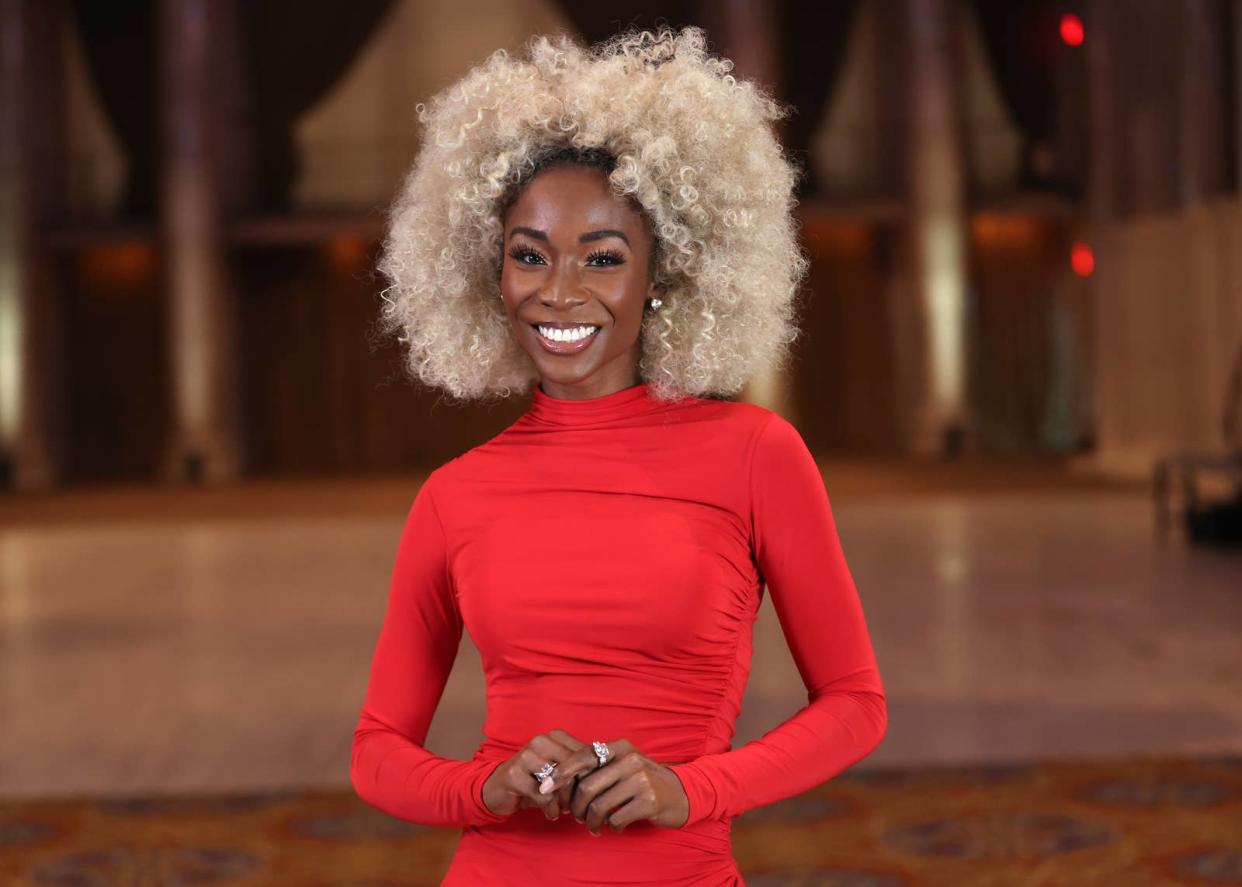
Like many others, I first discovered Angelica Ross in 2018 after she was cast in Ryan Murphy's FX series, Pose. Angelica played a ballroom performer named Candy Ferocity in the groundbreaking project, which reportedly made history by assembling the largest cast of transgender actors as series regulars on a scripted show.In late 2023, Angelica called out Murphy and her American Horror Story costar Emma Roberts, claiming that she experienced anti-trans remarks on set from Roberts and was ghosted by the lauded TV producer. In a recent interview with BuzzFeed, Angelica elaborated on her journey as a Black trans actor in Hollywood, shared why she can no longer watch Pose, and why she almost turned down a history-making role on Broadway. Dive in ahead.
Editor's note: This interview discusses suicide and has been edited for length and clarity.
BuzzFeed: You played Candy Ferocity in Pose, the groundbreaking FX series which follows Black and Latino queer characters in the '80s and '90s. For many of us, it was must-see TV each week. At what point did you realize the impact of the show?
Angelica Ross: I knew that Pose would have an impact on the world. But, to be honest, I wasn't sure where Candy would land in people's hearts. She wasn't a priority in the storytelling and the script. It was one of those things that, because I am an improv actor, many times when there weren't lines written for me in the script, I made them up. After a while of them seeing how good I was, they just kept telling me, "Go ahead and make some stuff up."
Can you share a scene that was improvised?
The scene when I'm in the diner with Billy Porter's character [Pray Tell] and the council, and he's like, "Carmen Sandiego. Did somebody tell you we were meeting here?" I was like, "No, everybody knows this is where you bottoms brunch." I came up with that line on the spot because Ryan Murphy whispered in my ear telling me to say something that attacks their femininity or what have you. That's all he gave me as a cue.
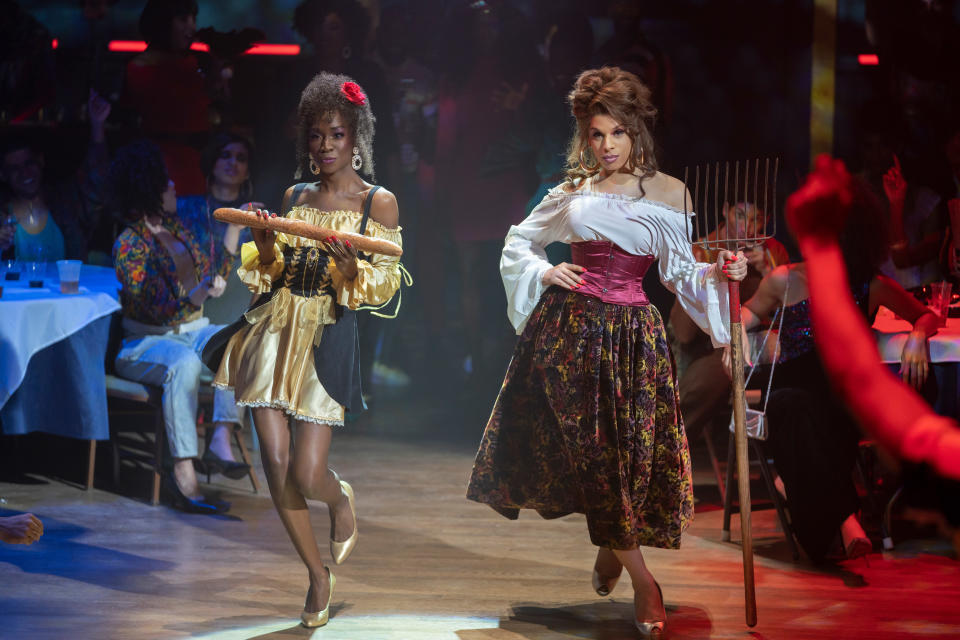
Editor's note: Major show spoiler ahead.
When did you start to feel like fans were coming around to Candy?
When the audience first met Candy, they were initially like, "Oh my god, I wish this girl would go away somewhere." They would laugh about whether Candy was bringing her [signature] hammer with her, or different things. What I was bringing to the table with Candy, which I know a lot of Black trans women saw, was an energy that said, "Why don't you see me? I'm standing here right next to this light-skinned bitch. Why don't you see me?"In the ballroom community, there's a history of the fact that if you were dark-skinned, baby, you might as well not even bother walking face because that's not a dark-skinned girls' game. That's how it was back in the day with the ballroom. I was embodying that with Candy. I was experiencing not only being dismissed in the storyline but having the fans be a little bit dismissive of her too.
In hindsight, fans loved Candy when she was gone. All of a sudden, fans who were so shady about her and were always reading her realized that there's a Candy in every city trying to find support. Dark-skinned Black trans girls need the spotlight too. You didn't get to see Candy receive that spotlight until she was rising out of her coffin. She looked stunning, the best she had ever looked in the show. But it's unfortunate that was when she got to get her glory, and when we saw her finally get her flowers, it was after death. Sadly, that is just the reality for so many Black trans folks.
"Dark-skinned Black trans girls need the spotlight too."
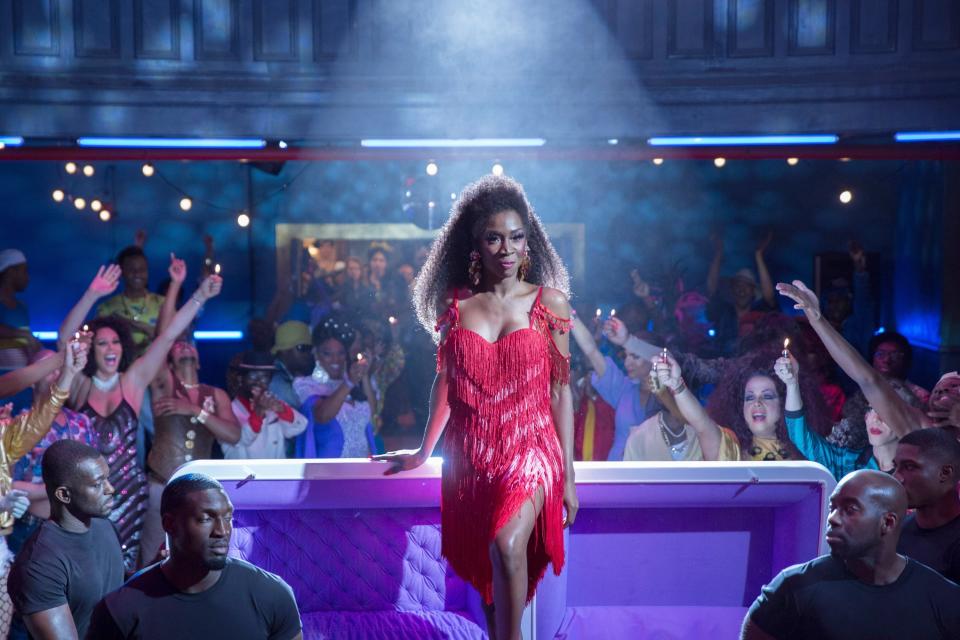
“Never Knew Love Like This Before” (Season 2, Episode 4) is often regarded as one of the best episodes of the entire series. In your view, what impact did it have in terms of highlighting violence against Black trans women?
I think that it had an impact, I know that it has. Unfortunately, my prayer has not yet been answered, though. I was on set praying, "Please let this send a ripple effect around the world, and that it stops entirely the murders and the violence against Black trans women." I can't say that it has stopped. What I can say is that we see a lot more people who care. We're able to look to our left and our right, and we're seeing a lot more allies. We're seeing a lot more people who are trying to correct themselves and who want to learn.
Have you rewatched the show since it ended?
I have not watched Pose in years. I can't bring myself to watch it. It's very, very hard for me. I went through a grieving process with that. When you are acting and have to go through a death, both lying on a motel room floor as well as lying in a casket, it makes you think about the people who are going to show up at your funeral who never showed up for you in real life. People who talked ill about you in real life, but might be at your funeral speaking [fondly of you]. Candy's funeral was a rude awakening for so many people. I had a flood of messages, and I still get a ton of DMs, from families who tell me how much Candy has changed their relationship with their child or with their parents.
"I've had it with Hollywood and the protection of bad actors."
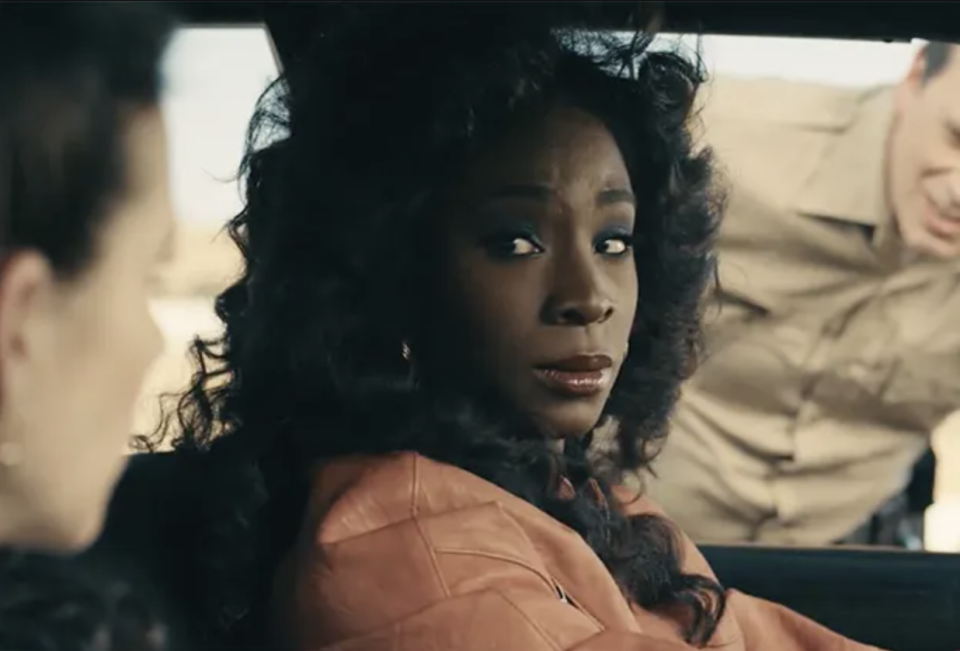
You recently opened up about your experience on the set of American Horror Story: 1984. You, very bravely and admirably, called out your costar, Emma Roberts, for making anti-trans comments. What made you speak out?
I'm proud of my work. I'm even more proud of it when I think about what I went through to get the job done. I've had it with Hollywood and the protection of bad actors. And when I say bad actors, I'm not talking just about the performance. I'm saying folks who are behaving badly and everyone knows they're behaving badly.
What is wild to me is everyone wants to have smoke for the Black trans woman when she opens her mouth and says anything, but don't want to have smoke for the actual thing that we're calling out. The thing that so many people are aware of. The amount of DMs and text messages I got after that, from folks who have worked in any of those circumstances, telling me how brave I was, and telling me about their own experiences with any of those folks. So many people, from directors to writers, and two actors, messaging me behind the scenes, but couldn't say anything publicly, which is fine. I get it. I understand. I do. But we're just built differently.
You later revealed that you spoke with Emma. What did you say to her?
I was just like, "Girl don't do it. You know what was going on. If you don't want to talk about the overarching issue of how you're behaving, then apologizing ain't gonna do anything for me. I don't know what to tell you. You're not sorry, you're just sorry that [backlash] has come or whatever." And that's not why I even mentioned it, that wasn't even what the intention was. It was just me speaking my truth.
I'm not here for [Hollywood] treating Black people differently in the industry, meanwhile also trying to pretend like [they're] for diversity and inclusion when [they] just want more white women at the table. We're not calling out how those same white women sometimes are very violent on set with their privilege. That's why I said something.
You also claimed that Ryan Murphy has ghosted you. Where do you stand with him today?
I am grateful for Ryan Murphy and what he has done. But you can't just call us the LGBTQ community. We don't all belong together. The thing that ties us to one another is accountability. Accountability is the admission price for community.
Editor's note: BuzzFeed has reached out to both Murphy and Roberts for comment.
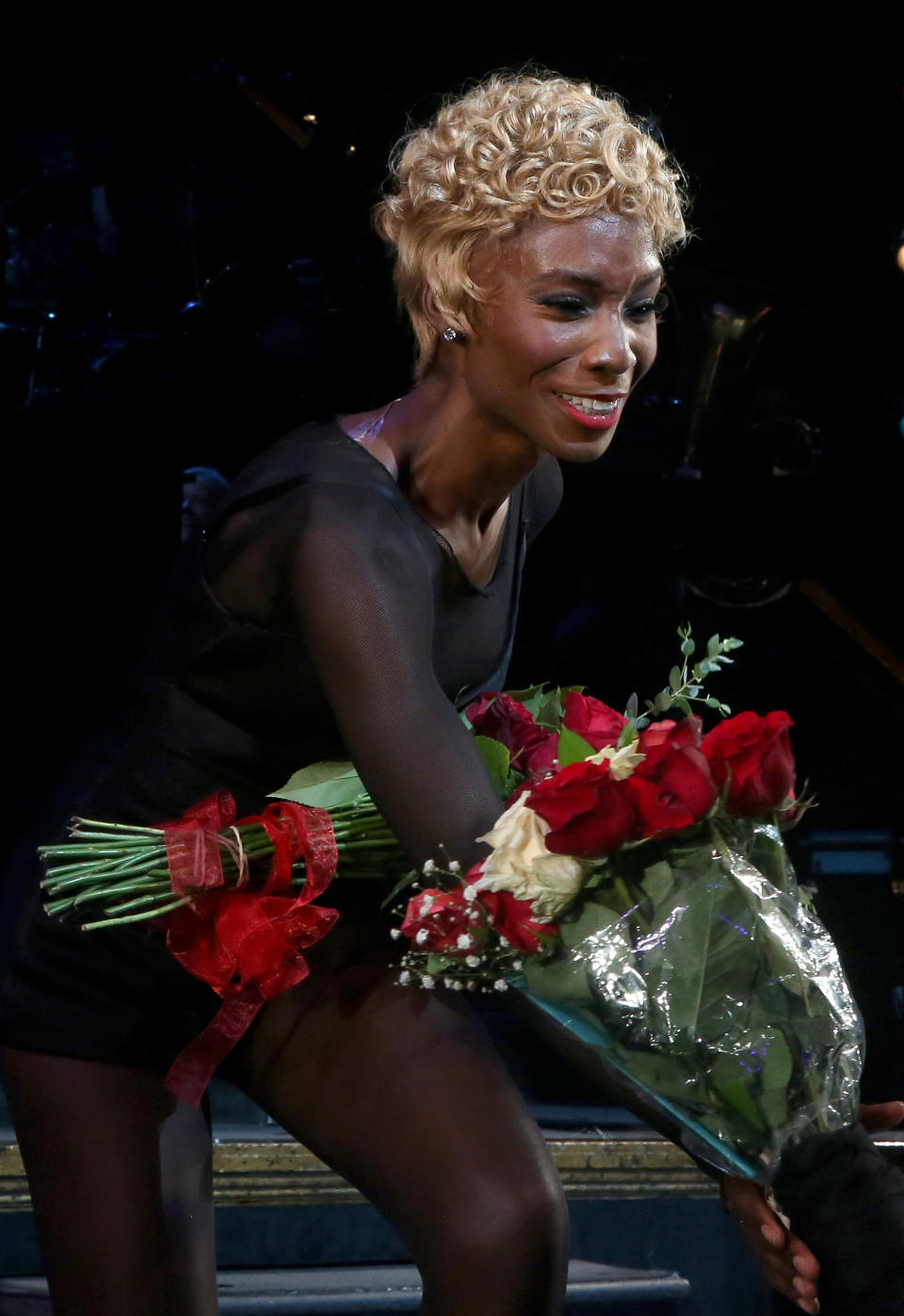
You are reportedly the first trans female actor to secure two series regular roles, the first openly trans woman to ever play a leading role on Broadway, and the first openly transgender person to host an American presidential forum. What’s your relationship like with being the first person to accomplish something?
To be honest, I do not like being the first. I am the oldest child, from my mama, and my whole experience was way different than my younger brother's experience. As the first, you have to go through and pioneer some stuff. It is not easy.
Being the first doesn't hold a lot of weight for me because I know that I might be the first not necessarily because I was the best, even though I don't do anything without at least thinking and working like I am the best for the situation. I do understand there were times when so many girls before me, especially trans folks before me, had the same dreams that I had.
I like being the first Black trans woman to step into a role like that — as a trans person, period. There have been principal roles, but to lead a play [on Broadway] like that ... I didn't want to diminish that. But I also didn't want to cast a shadow on the work that had already been done [by others] in a similar field. And so I didn't. I stay out of calling myself the first anything.
"There's not much that can take me down. And if it does, it's only temporary."
Is there someone you respect in the industry who you were most surprised to learn is a fan of your work?

Sheryl Lee Ralph. She is the sole reason why I accepted the role of Roxie Hart in Chicago on Broadway. I almost turned it down. I just remember running into Sheryl at Janet Jackson's birthday party. I was like "Sheryl, I gotta ask you a question. ... I have this opportunity with Chicago on Broadway, but I don't know if I want to take it." And she said, "Take it. I already know why you're hesitant. They're not gonna pay any of us what we're worth."
I didn't even have to tell her. She said, "This is not about them. This is about your moment. And this is about the fact that you deserve this. You're going to be able to show the world what Black trans women can do. And we are going to pack that audience to come see you."
And so many people did come out to see me, from around the world. I signed autographs until every single person was gone. Fans of American Horror Story and fans of Pose. It was such a great experience. It was the hardest thing that I've ever done in my entire life. I've never worked harder, eight shows a week. That was a lot, for two months straight. But it's because of Sheryl Lee Ralph [that I did it]. I am so glad that not only she sees me and sees my talent, but she affirms it. She encourages me, she's always there to listen. She's just really a real sister.
Did you grow up with religion and spirituality?
I grew up in church hearing that [I was valuable] all the time. And then I got hit with messages that I was an abomination and that I was a sin. But those things did not ring true to my spiritual experience. So my drive initially came from clarifying that disconnect. People were saying one thing, but the spirit in me was saying another thing. So I had to figure it out.
What was that process like for you?
Me and God had a problem for a minute. To the point where I was like, "Alright, I prayed it away, I fasted, I did all the things. If that's not gonna work, then I'll take my life." I am amongst that number of so many Black and trans LGBTQ people, and pretty much just LGBTQ people in general, where our suicide rates are so high.
I was 16. I just remember looking at the Lord's Prayer on my mom's wall in the bathroom as I was taking her medication. Before I fully passed out, Jesus spoke to me and said, "What you're doing? I know who you are. I already know. Get up off the floor. Pick up your cross, and walk." We have heard that so many times, about that thing that you think is a burden that is yours to carry. It's a gift. You just have to pick it up and walk with it, and understand that as life goes on.
It's not that it gets any lighter. Being Black in America doesn't get any easier. Being trans in America doesn't get any easier. But baby, I got these guns and I am strong with it. There's not much that can take me down. And if it does, it's only temporary.
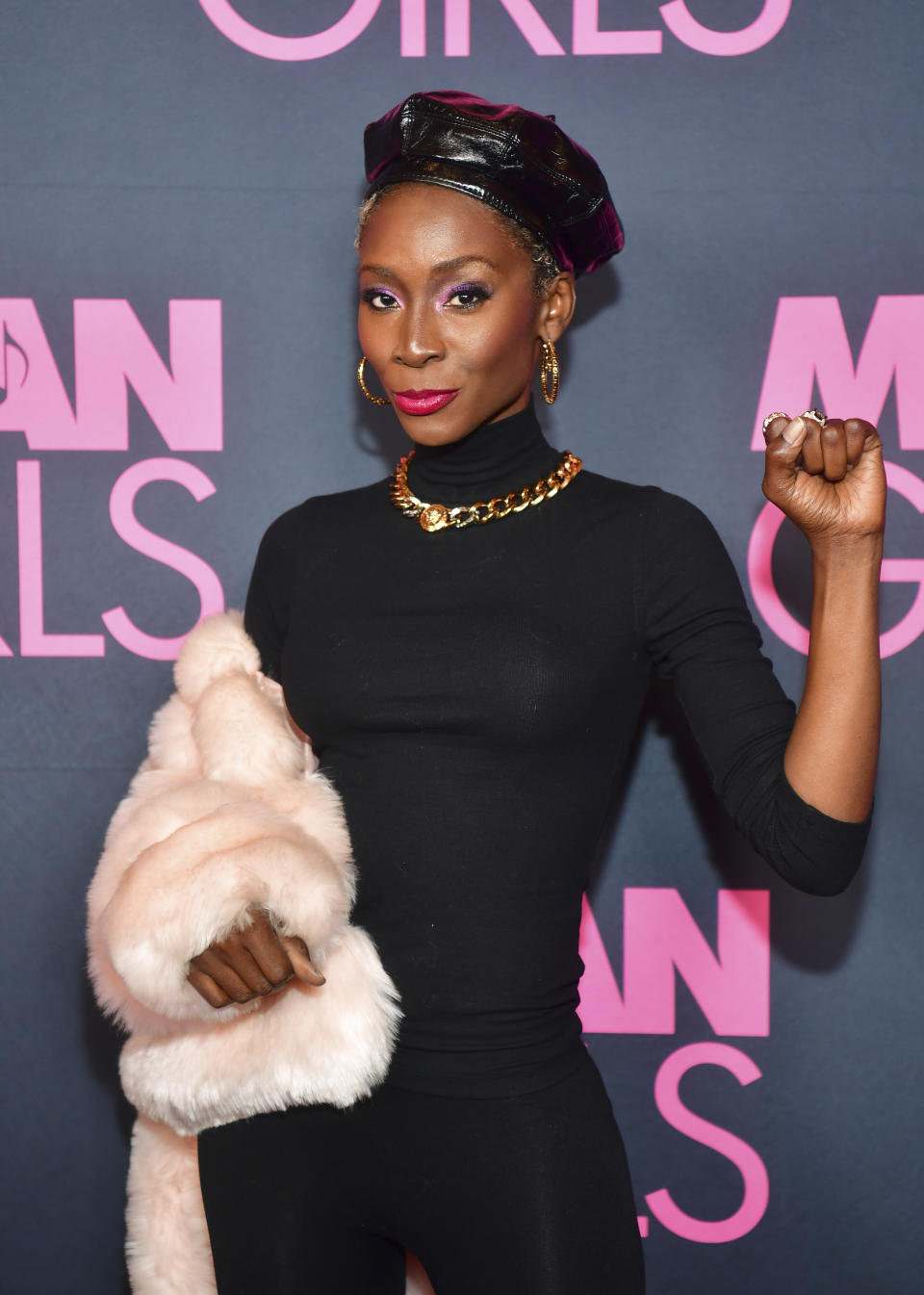
You’ve created something truly amazing with TransTech Social Enterprises, your nonprofit organization that trains and employs LGBTQIA+ people to thrive in the technology industry.
I started TransTech out of my experience being underemployed, having to deal with showing my ID at work and dealing with transition issues at work. I was a Black trans woman, right there with everybody else in the margins, being sex trafficked into the adult industry. There was a high level of coercion that said, "Well, what else are you going to do, sweetie? Your ID doesn't match, your name doesn't match." In America, that's an equation for being harassed on the job.
It wasn't my aspiration to pose on adult websites. But I learned that I could run the adult website and that was when the whole game changed for me. That's when I knew that I was on to a blueprint that I could pass down to my trans brothers and sisters in a way that didn't say that they had to go exactly the way that I did.
I knew that there were women and LGBTQ people around the world who needed opportunities and who could help me. Not only did they have the skills to be able to do the job, but their cost of living and my budget for my projects went hand in hand. That was how I was able to leverage a workforce of LGBTQ people and women around the world. I'm so glad to see us in the spaces that we didn't see ourselves at first.
Who was your support system while coming to terms with your self-identity?
[Veteran drag queen] Traci Ross. She is my mother. She performs like nobody else and she puts her all into every single performance. She is where I got my name from. She is the person who taught me what it meant to carry a name, like Miss Ross. She always encouraged me to stay off the streets. And I did, for the most part.She was a very strong influence over my life as I was figuring things out. She encouraged me while I worked, and she helped me avoid bad men as I was coming up. She was sometimes a little overbearing, just like how Elektra was with Blanca [in Pose] because she came from a time when her tools worked for her. But she taught me how to make the most out of this life. I will never forget that.
I love that. Do you remember who was your first queer crush?
My first queer crush was Darryl Stephens from Noah's Arc. Hey, boo!
Who is your Black queer fashion icon?
Law Roach! Law plays no games with Zendaya or herself! When you are that bitch, you can be that bitch.
"My queer and trans icons are those girls whose stories might not ever get sung."
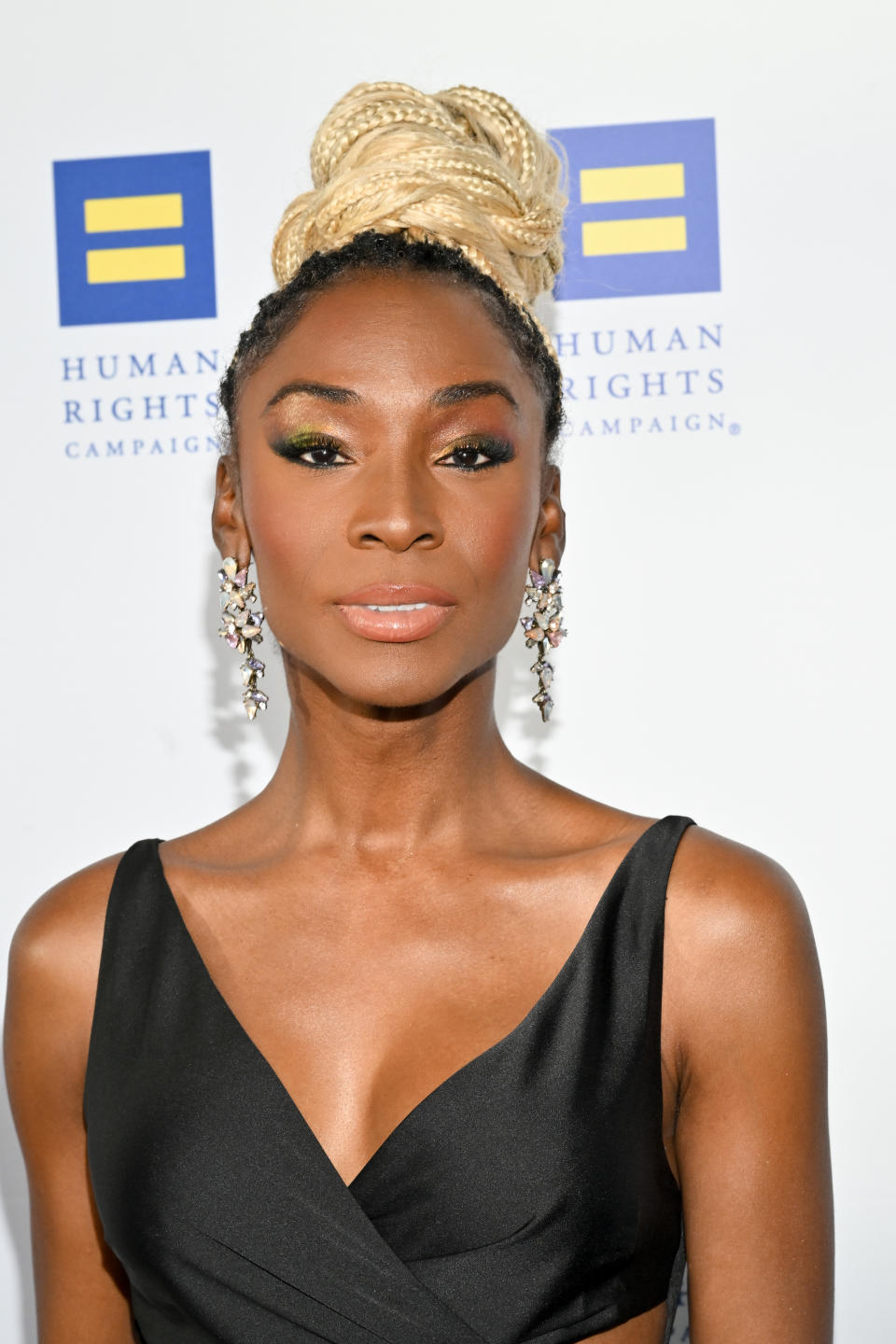
Who is your Black queer icon?
My Black queer icon has to be, hands down, Marsha P. Johnson. So many people bring up her name but know nothing about her true struggles. People who want to uplift her name or talk about her as a queer icon but don't support sex workers, or don't support Black trans women who have to do survival sex work.
For me, my queer and trans icons are those girls whose stories might not ever get sung. We just happen to be blessed that we got to hear about Marsha P. Johnson, but I know that there's a lot of Marsha P. Johnsons and a lot of Candys in the world whose stories didn't make it to the mainstream.
What does Black History Month mean to you?
Black history is all year, we don't need a month to celebrate it. Black History Month is just the month we turn up! So do what you have to do. Go to the lake, party with your friends, go to the cabin. Know that there's nothing wrong with creating spaces for Black joy, spaces that are not centered in whiteness, that are not taken over by whiteness, and that are not influenced by whiteness. We deserve that.
Thanks for chatting with us, Angelica! Be sure to keep up with Angelica Ross here.
You can read more Black, Out & Proud interviews here.The National Suicide Prevention Lifeline is 1-800-273-8255. Other international suicide helplines can be found at befrienders.org. The Trevor Project, which provides help and suicide-prevention resources for LGBTQ youth, is 1-866-488-7386.



